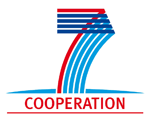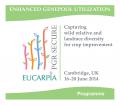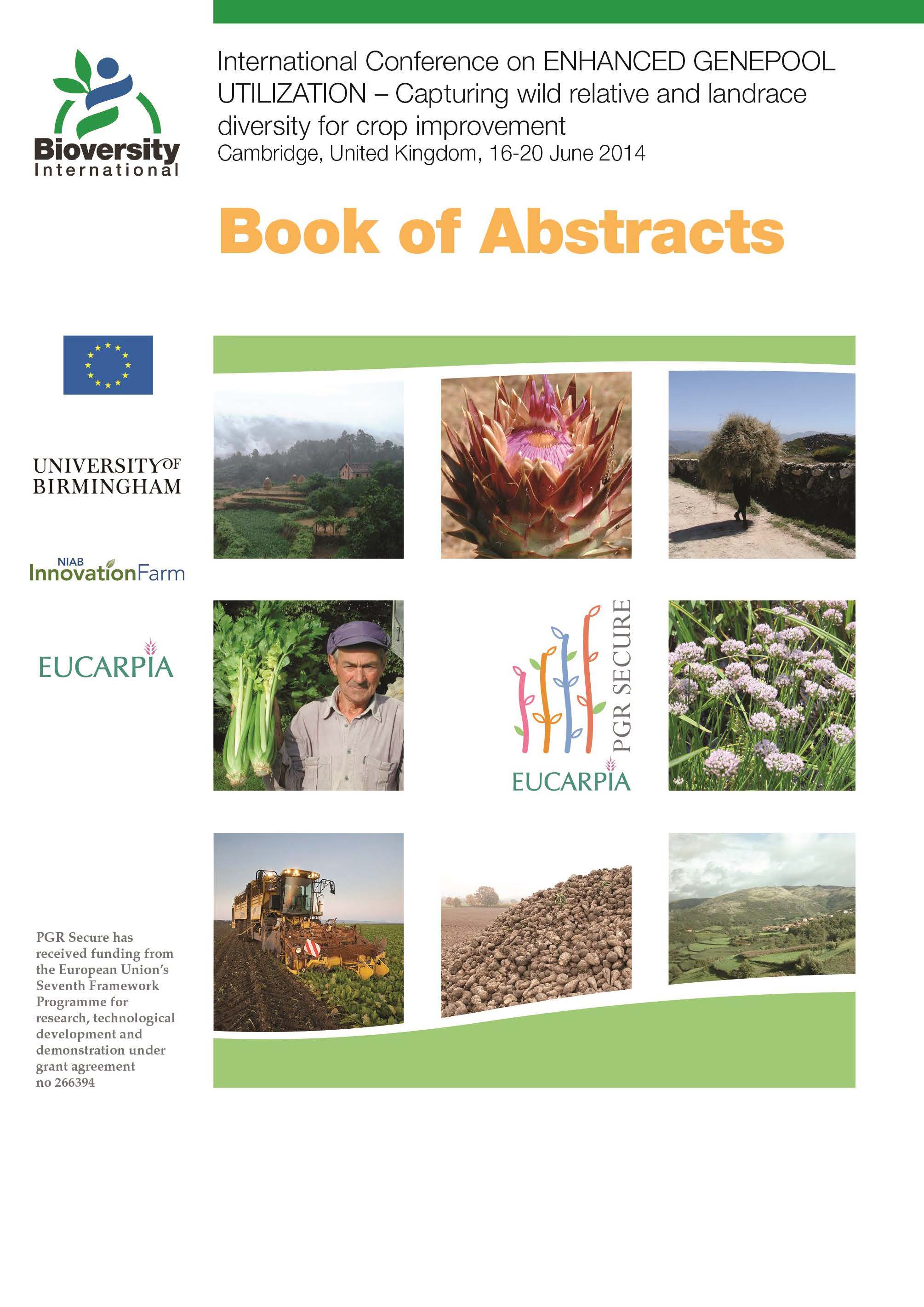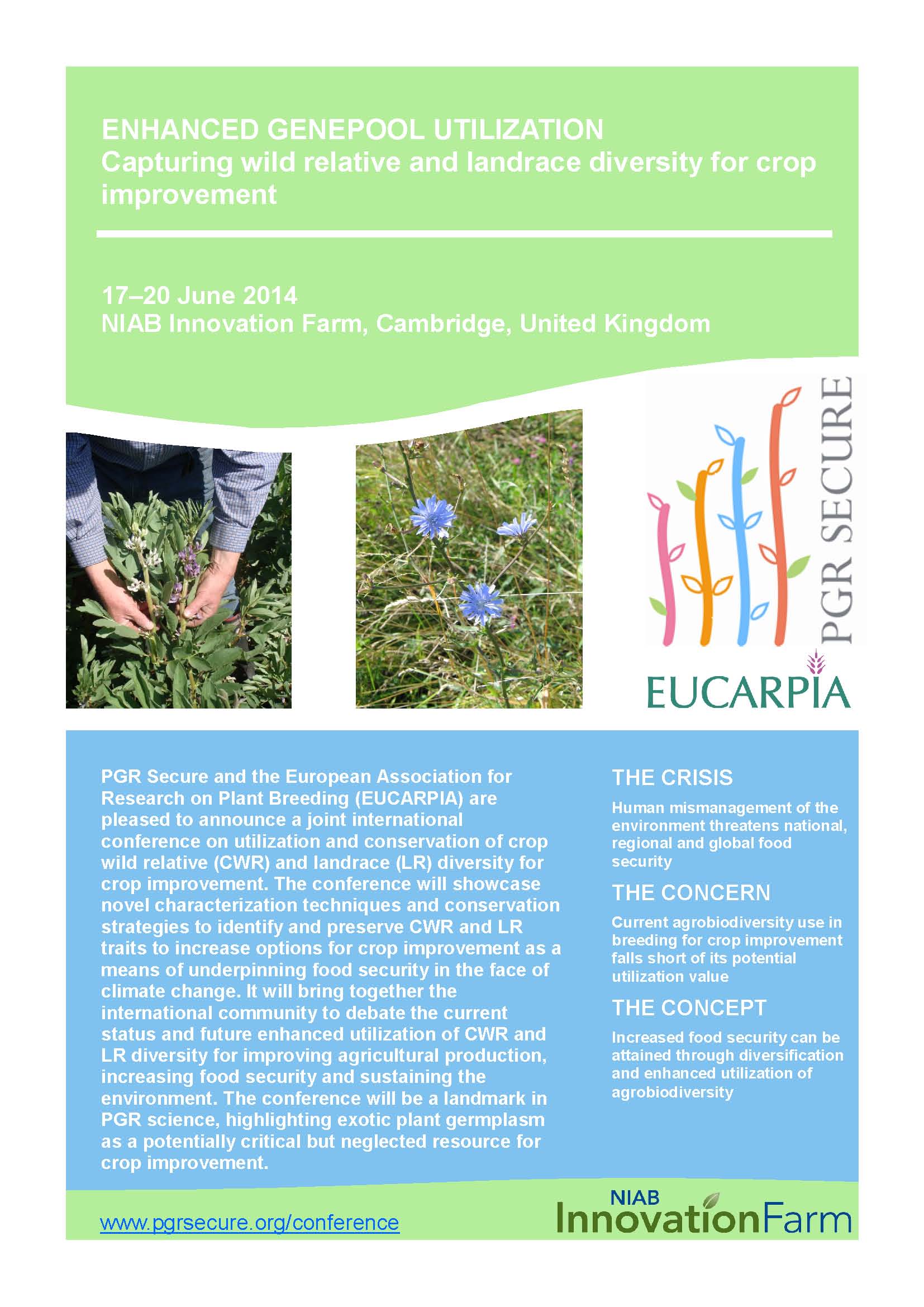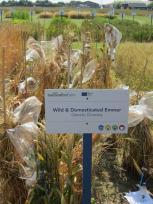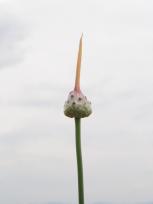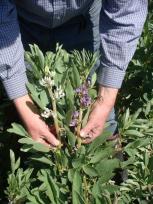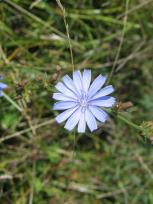ENHANCED GENEPOOL UTILIZATION ‒ Capturing wild relative and landrace diversity for crop improvement
GUEST LECTURER
Dr. Jean Christophe Glaszmann
Dr. Glaszmann is researcher at CIRAD, the French centre for international cooperation in agricultural research for development, in Montpellier. He is director of AGAP, a major joint research unit (with over 160 scientists of CIRAD, INRA and Montpellier SupAgro) focussed on plant genetic improvement and crop adaptation for over twenty tropical and Mediterranean species. His own research deals with the analysis and use of genetic diversity in diverse crops such as rice, sugarcane, sorghum and banana. Among others, he contributed to a major revision of the classification of rice varieties, the characterization of the sugarcane genome in comparison with other grasses, the exploration of linkage disequilibrium for association analysis, and the exploration of phylogeographic approaches for assessing genetic diversity. From 2004 to 2010 he led the sub-programme on crop genetic diversity of the CGIAR Generation Challenge Programme. In 2008 he received the Jean Dufrenoy Award of the French Academy of Agriculture.
KEYNOTE SPEAKERS
Dr. Lisanne Boon
In 2007 Dr. Boon joined the Dutch vegetable breeding company Rijk Zwaan as a Company Lawyer. In this role she has been involved in negotiating multiple material transfer agreements with genebanks and universities. Through these negotiations she has gained more and more experience with the different international biodiversity regulations as well as the manner in which they have been implemented in different countries. Before joining Rijk Zwaan, Dr. Boon worked as a lawyer in a medium-sized law firm in The Hague, The Netherlands for a period of three years. She is a member of the ESA Working Group Biodiversity
Dr. Richard Finkers
Dr. Finkers is Senior Researcher in the group Quantitative Aspects of Plant Breeding of Wageningen UR Plant Breeding. He obtained his PhD in breeding for resistance to Botrytis cinerea in tomato. Afterwards, he moved into the field of bioinformatics and played a key role in genome re-sequencing projects, such as the tomato 150+ genome project (www.tomatogenome.net) and in the development of resources such as BreeDB and SolRgenes. His overall research focus is on the development of bioinformatics/biostatistics methods and infrastructure to improve plant breeding.
Dr. Michael Halewood
Dr. Halewood is Theme Leader of 'Policies for Crop and Tree Diversity Management' at Bioversity. In this capacity he focuses on policy research and capacity strengthening, usually in the context of multi-stakeholder projects in developing countries. His current research includes institutional and policy support for agricultural biodiversity commons from local to global scales; institutional and policy support for improving availability of seed of enhanced farmers’ varieties; mechanisms for enhancing availability and use of crop diversity through combined formal and informal seed systems; farmers’ rights and implementation of the International Treaty on Plant Genetic Resources for Food and Agriculture. Dr. Halewood joined Bioversity in 2001.
Prof. José M. Iriondo
Prof. Iriondo is Professor at Universidad Rey Juan Carlos, Madrid, Spain and is responsible for the development of the National Crop Wild Relative Strategy for Spain in the PGR Secure project. He is a member of the Coordinating Group of the ECPGR In situ and On-farm Conservation Network; Director of the International School of Doctoral Studies of Universidad Rey Juan Carlos; Ex-Secretary General of OPTIMA (Organization for the Phyto-Taxonomic Investigation of the Mediterranean Area); and member of the Species Survival Commission of IUCN and three of its Specialist Groups. He is author of over 100 research articles in scientific journals or books and of over 40 divulgative publications. He is principal investigator of 37 research projects, all dealing with different aspects of ex situ and in situ plant conservation.
Dr. Mathias Lorieux
Dr. Lorieux is a Senior Researcher of the IRD (Institut de Recherche pour le Développement), France. He has been working at the International Centre for Tropical Agriculture (CIAT) since 2002, where he leads the Rice Genetics and Genomics Laboratory. He has been coordinating several international research projects involving developing countries, advanced research institutes and universities. After studying general biology and ecology, he obtained a PhD in biostatistics (theoretical genetics) from the University of Montpellier II, France. His research activities have focused on developing methods and tools to facilitate and improve the use of wild germplasm in plant breeding, and on phenomics and reverse genetics database tools based on insertion T-DNA mutants. He developed a Universal Core Genetic Map for rice and an associated database, Paddy Map (http://mapdisto.free.fr), several libraries of interspecific Chromosome Segment Substitution Lines (CSSLs) that carry chromosomal introgressions of wild rice species into the cultivated rice genome, interspecific bridges (iBridges) that make possible the use of African rice in rice breeding, and sets of easy-to-use SNP markers. One specific focus was the analysis of the genetic bases of the O. sativa x O. glaberrima reproductive barrier. Dr. Lorieux also has worked in the development of algorithms and computer programs for genetic analyses, namely MapDisto and CSSL Finder (http://mapdisto.free.fr). He has organized training courses in bioinformatics for IRD scientists and set up computational facilities for the Montpellier IRD Research Centre.
Dr. Nigel Maxted
Dr. Maxted is Senior Lecturer at the University of Birmingham, UK. He has professional expertise in in situ and ex situ plant genetic conservation and has published over 280 scientific papers and written or edited 18 books on various aspects of biodiversity conservation and use. He led/leads National, European and global crop wild relative and landrace conservation projects (including the EC-funded PGR Forum and PGR Secure projects) and regular acts as a consultant for FAO, GEF, World Bank and national governments. He is Co-Chair of the IUCN SSC CWR Specialist Group; Member of the IUCN/SSC Plant Subcommittee; Member of the IUCN/SSC Conservation Planning Committee; Chair of ECPGR In Situ and On-farm Conservation Network; Chair of the ECPGR In Situ Working Group; Chair of the UK PGR Committee; Senior Scientific Advisor for the GEF / World Bank on PGR Conservation; and Honorary Research Fellow at the Royal Botanic Gardens, Kew. Dr. Maxted undertakes extensive undergraduate and postgraduate teaching, as well as vocational and field course training experience in biodiversity conservation, taxonomy and plant genetic resources management. He has supervised 30 PhD, 7 MPhil, 14 MRes and >100 MSc research projects.
Dr. Hugo Perales
Dr. Perales is Senior Researcher at El Colegio de la Frontera Sur (ECOSUR), a public research institution in southern Mexico. His research focus has been on in situ conservation of maize landraces in Mexico, investigating the conditions that delimit and explain their maintenance and distribution, the role of culture in structuring its diversity and the local adaptation and evolutionary potential of these landraces. His formal training was as an agronomist, ethnobotanist and agroecologist and he started his professional work in a botanic garden where his interest in diversity deepened. Previous to working in Chiapas he carried out research in southern Veracruz with indigenous people and in central Mexico. He has served as Head of the Agroecology Department and Director of Alternative Production Systems at ECOSUR and has acted as a consultant for Mexican Government institutions for the management of maize genetic resources.
Dr. Maryam Rahmanian
Dr. Maryam Rahmanian works with farmers and breeders to implement a national programme on Participatory Plant Breeding in Iran, an initiative of the Centre for Sustainable Development and Environment (CENESTA), an Iranian NGO, where she has been Research Associate since 2001. She is currently serving a second term as the Vice Chair of the Steering Committee of the High Level Panel of Experts on Food Security and Nutrition of the Committee on World Food Security. She has an MA in Leadership for Sustainability from the University of Lancaster.
Dr. Abishkar Subedi
Dr. Subedi is a specialist in agrobiodiversity and seed systems working at the Centre for Development Innovation (CDI), Wageningen University and Research Centre, The Netherlands. He holds a PhD in botany from the National Herbarium of the Netherlands, Leiden University. For two years he was programme director for Local Initiatives for Research and Development (LI-BIRD) in Nepal. Since 2011 he has been working at CDI where he is responsible for the coordination of the Integrated Seed Sector Development (ISSD) in Africa – Phase 2. He has also been an advisor for the Integrated Seed Sector Development (ISSD) in Ethiopia – Phase 2, a global advisor to Brazil, Ecuador, Guatemala, Nicaragua, Bangladesh, India, Nepal, Benin, Ethiopia, Malawi, Zambia and Zimbabwe, and conducted research on a global study of community biodiversity management and empowerment.
Dr. Theo van Hintum
Dr. van Hintum is Senior Scientist at the Centre for Genetic Resources, The Netherlands (CGN). He has been with CGN since its beginning in 1986. He started, still a student at Wageningen University, as database administrator, continued as scientist and later, senior scientist. In this capacity he is currently responsible for documentation and methodology. He received his BSc in Plant Breeding from Wageningen University, and his PhD from the Swedish University of Agricultural Sciences. His career at CGN included a five year period 2004–2008 during which he was made available to the CGIAR Generation Challenge Programme (GCP) to act as Sub Programme Leader for Bioinformatics and Crop Information Systems, and in 2005 for a short while as Interim Director. At CGN his research covered a wide array of topics related to plant genetic resources management. This included the application of new technologies (genomics, information technology) to genebank management, but also quantitative genetic approaches to the composition of genebank collections, environmental niche modelling and quantitative studies of genetic erosion. Dr. van Hintum is active on several international platforms related to plant genetic resources management, undertakes reviews and consultancies and has published over fifty papers in scientific journals.
Dr. Daniel Zamir
Dr. Zamir is Professor of Genetics at the Hebrew University of Jerusalem, Faculty of Agriculture, Rehovot. He holds a PhD in genetics from the University of California, Davis. His research interests cover plant breeding, complex traits, rose, lisianthus and tomato. Relevant publications include:
- Krieger U, Lippman ZB and Zamir D (2010) The flowering gene SINGLE FLOWER TRUSS drives heterosis for yield in tomato. Nature Genetics 42, 459–63.
- Gar O, Sargent DJ, Tsai CJ, Pleban T, Shalev G, et al. (2011) An autotetraploid linkage map of rose (Rosa hybrida) validated using the strawberry (Fragaria vesca) genome sequence. PLoS One 6, e20463.
- The Tomato Genome Consortium (2012) The tomato genome sequence provides insights into fleshy fruit evolution. Nature 485, 635–641.
- Zamir D (2013) Where have all the crop phenotypes gone? PLoS Biol. 11, e1001595.

